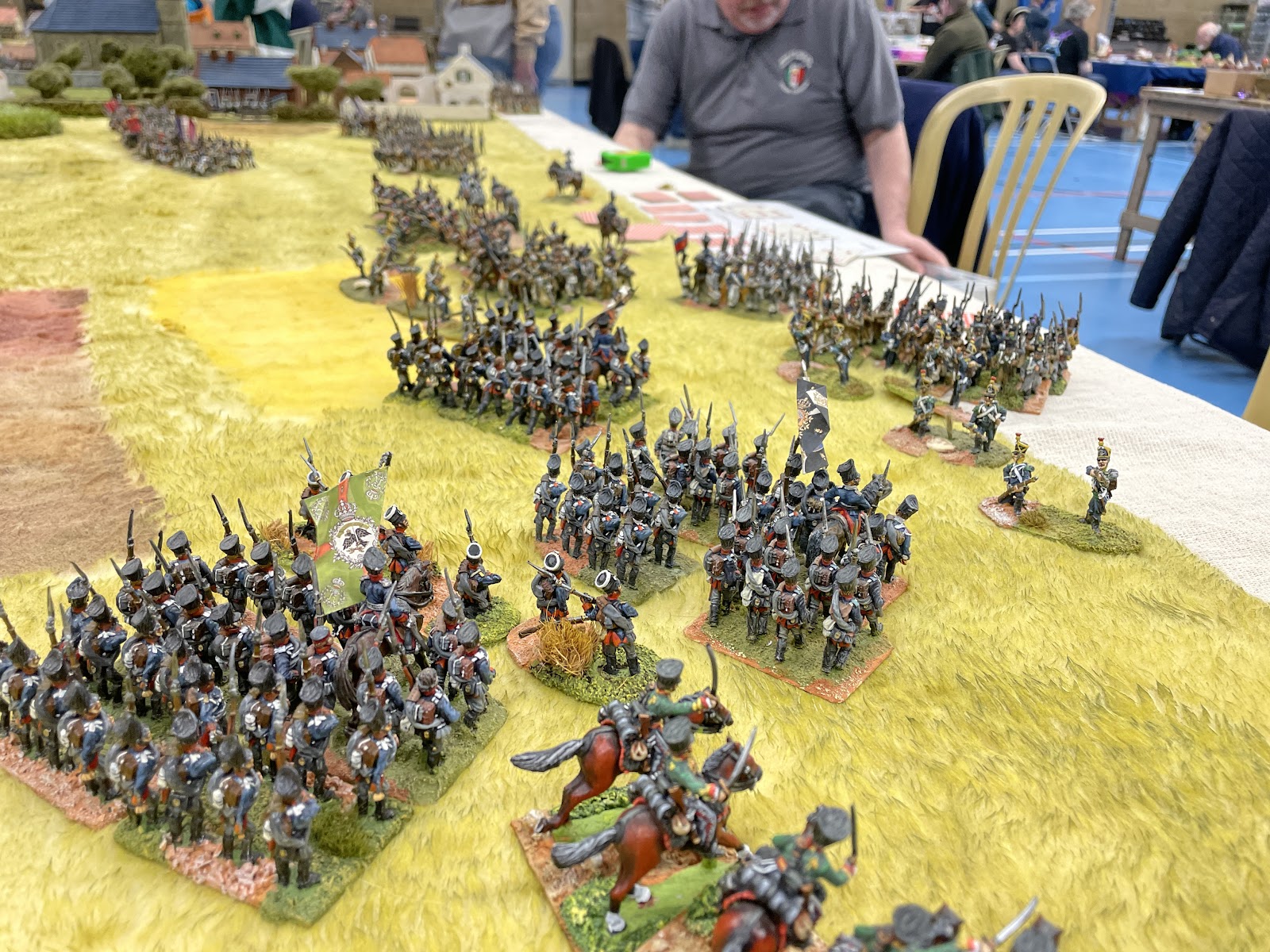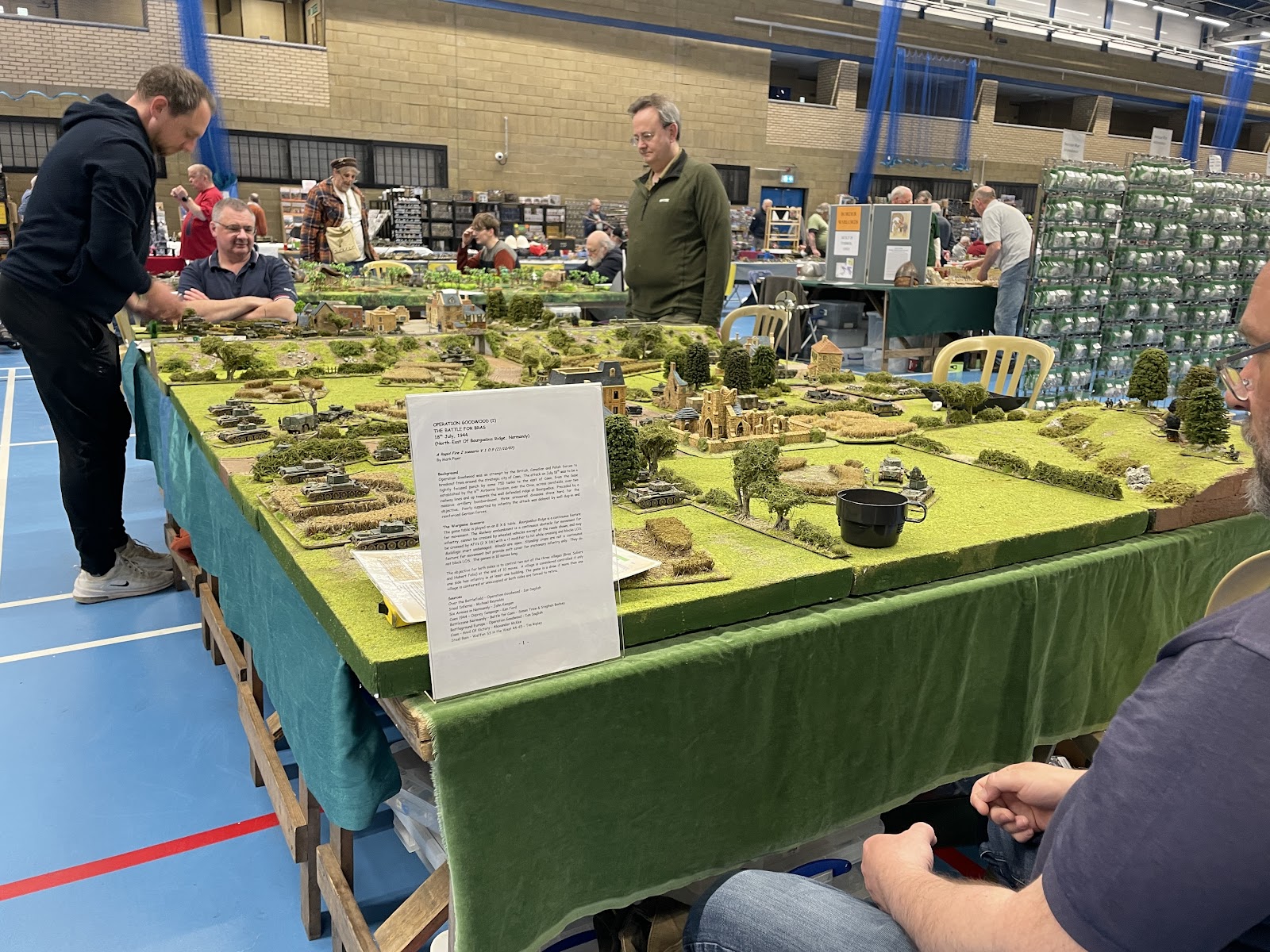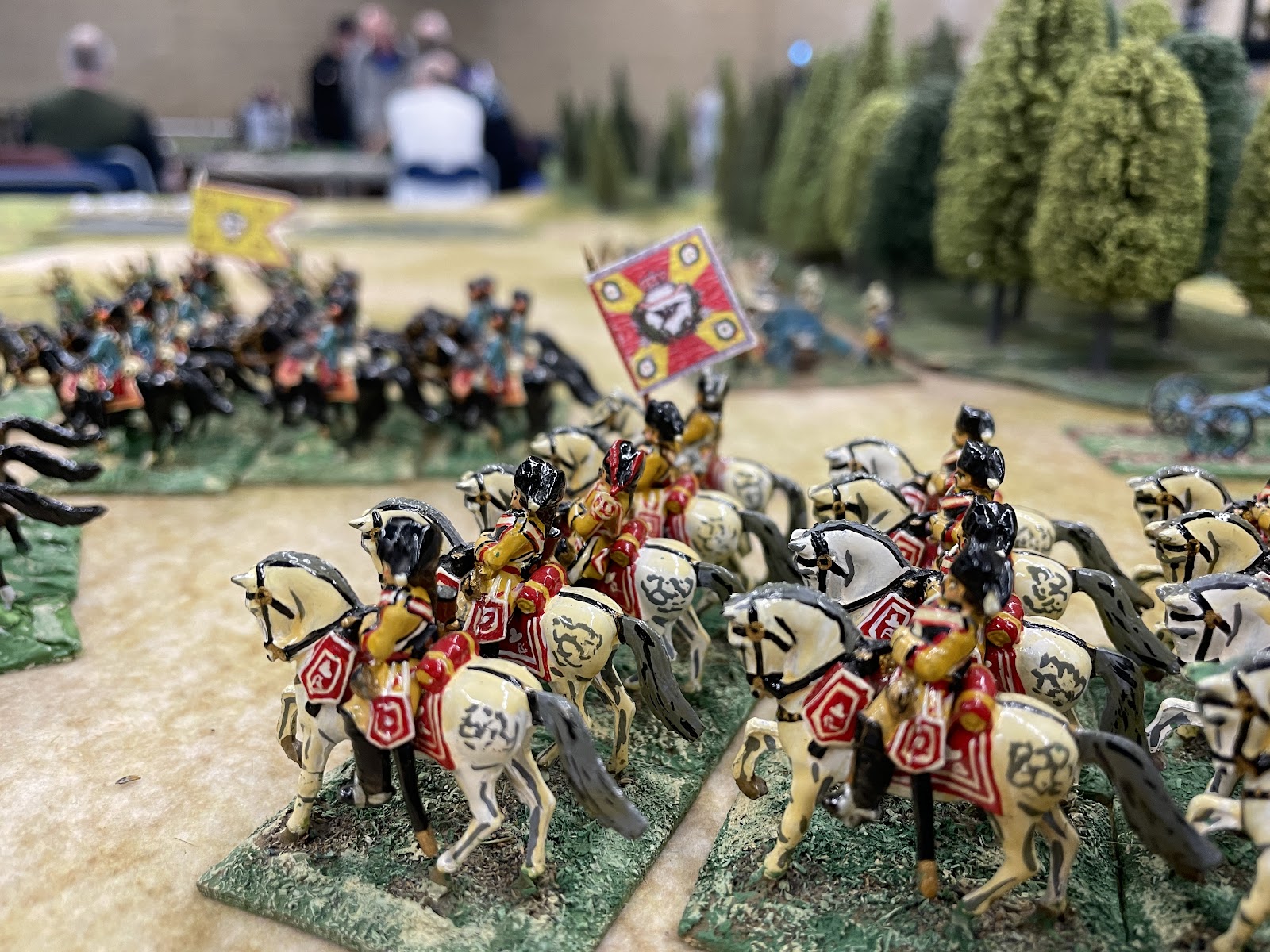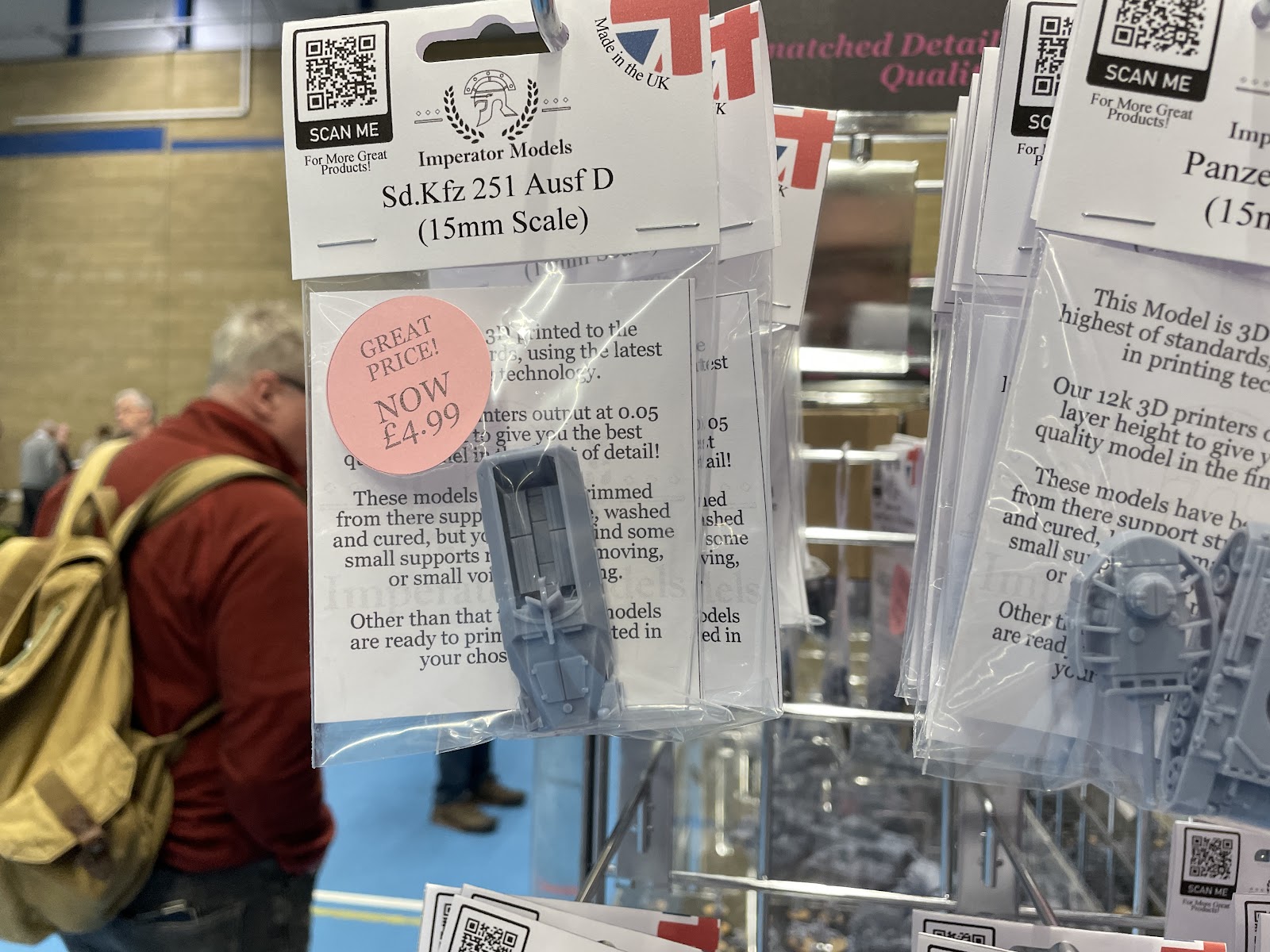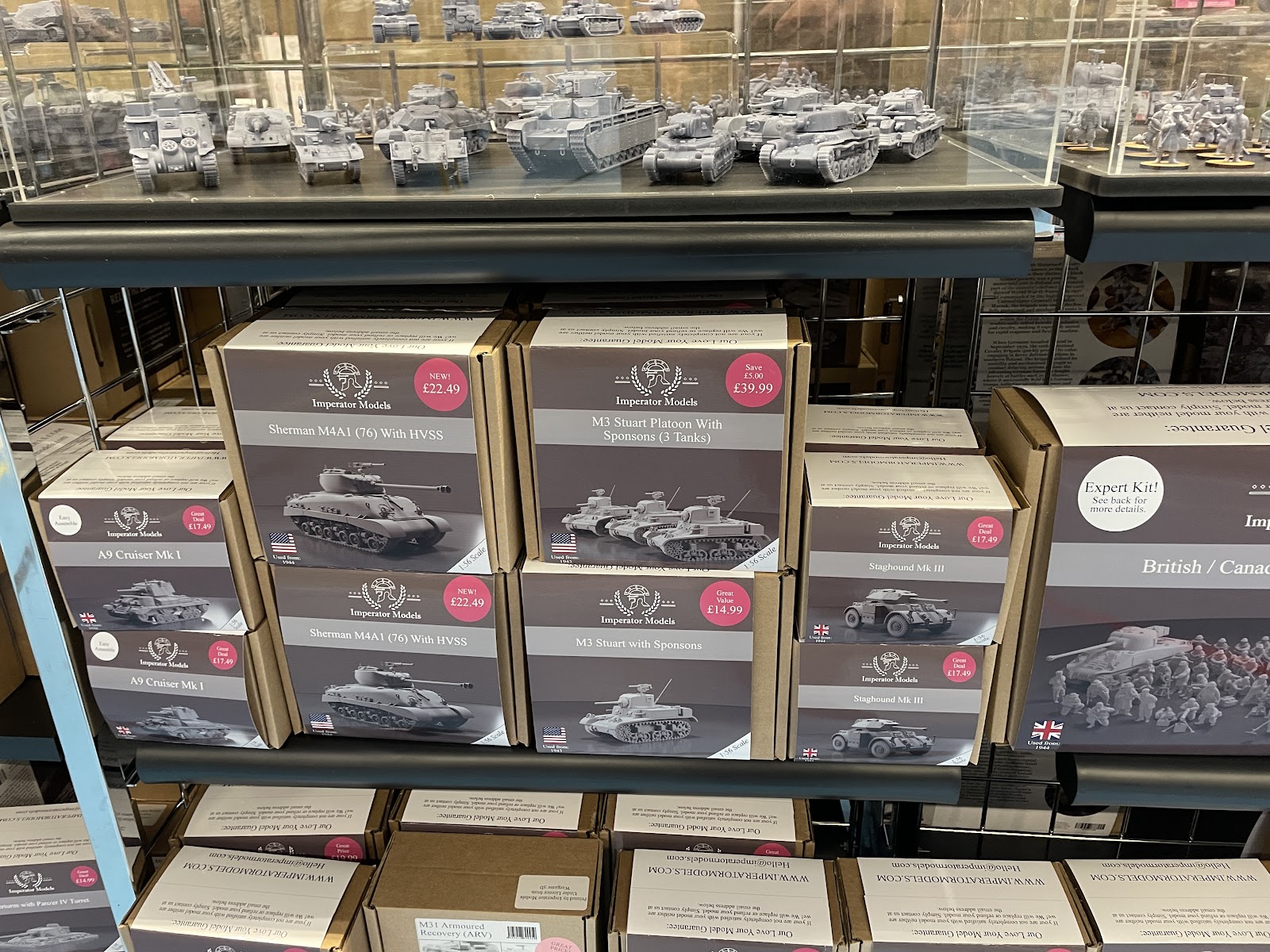Calpe
Von Peter Himslef has declared: the 4/132nd Ligne is now complete with a casualty marker and skirmisher base. Huzzah...!
and Calpe miniatures are back in production again at Gripping Beast phew...
Aly came across some relics from Waterloo Uncovered.
Small scale gaming from https://battlesin6mm.blogspot.com/
Lechdorf is a fictional game" What follows is a report of our most recent Napoleonic engagement using the Volley & Bayonet rules and 6mm miniatures. This fictional engagement is set in 1809 where the French have crossed the Danube east of Vienna and are confronted by the Austrians. It is considered to be just prior to the historical Battle of Aspern-Essling"
Hinton Hunt Austrian Grenadiers are getting fresh paint.
and still in Old School Miniature Minions declares
The 2nd Battalion of the 4th Infantry Regiment of Baden is done.
Blunders on the Danube has been prolific this month... the Cazadores caught my atention
Also prolific is Don't Throw a one - loved these limbers:
Scrivland coninues to churn out Prussians
Epic scale 1813 battle:
" I also wanted to cram as many troops on the table as possible to stretch Lasalle, designed for Divisional games, to Corps size."
Chasseur is catching up posting some amazing painting "These are Victrix figures which are my favourite Austrian plastic kit due to the options. This is another 3 boxes making four units of 36,"
Computer moderated Albuera: "And things got going pretty quickly. Both Belette’s and Furet’s brigades launched an all-out assault on the Allied right and the village of El Tejón. None of this preliminary bombardment and softening up the enemy stuff. Straight in with the bayonet. Except you have to get through a fair amount of lead first to say nothing of struggling across a river or a bridge to get to grips with your opposite number."
Will has got some Italians painted and this post on the Alumwell show:
















